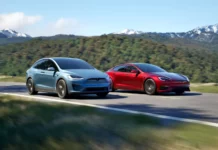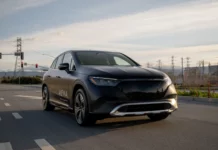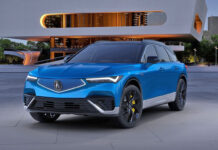New reports claim that President-elect Donald Trump is paving the way for wider adoption of autonomous vehicles on American roads, a move that could benefit his fellow billionaire campaign associate and now high-ranking official Elon Musk.
According to Bloomberg, advisers close to Trump want to develop a federal regulatory framework for self-driving cars. The robotaxi industry has been growing by leaps and bounds over the past few years, but federal policy has lagged far behind. Currently, the National Highway Traffic Safety Administration allows companies to produce only 2,500 self-driving cars per year, although automakers want to increase these numbers exponentially. Car companies also likely want a simpler regulatory code. In the vacuum of federal action, policy has largely been implemented at the state level, creating a complex patchwork of laws that companies must comply with.
While the new Trump White House may create a more consistent and streamlined regulatory path for autonomous vehicles, Bloomberg notes that broader action – which could open the floodgates for the robotaxi industry – must be authorized by Congress. The publication notes that a “bipartisan legislative measure” is currently being discussed, although it is still in its early stages.
Elon Musk, who recently headed Trump’s Department of Government Efficiency (DOGE), could benefit significantly if the government decides to open the floodgates for autonomous travel, Bloomberg notes. Elon Musk has said that he plans to launch a robotaxi service through Tesla and that in the coming years he hopes to focus the company more and more on automation and self-driving cars. In October, Musk unveiled what he called”Cybercab,” a prototype of a robot taxi without a steering wheel or pedals. At the event, Musk commented that he expects Tesla to launch “fully autonomous, self-driving” in Texas and California as early as 2026.
Musk’s move is likely intended to help him compete with current robotics providers, such as Google’s parent company Alphabet, which owns the Waymo robotics firm, and General Motors, which owns the troubled Cruise robotics vendor. Both Waymo and Cruise have made significant efforts to overcome regulatory barriers and ramp up self-driving car deployments over the past few years, with significant activity in California, Texas, and Arizona. Ridesharing giant Uber also has ambitions to enter the robotaxi business and has partnered with Waymo and Cruise to do so.
Other recent moves by the new administration, such as the announcement that Trump plans to eliminate the electric vehicle tax credit, are also seen as potentially beneficial to Musk and his companies.
Under the Biden administration, Musk has suffered from increased regulatory scrutiny, partly because of Tesla’s focus on automation and partly because Musk simply doesn’t like rules. Tesla’s claim to fame has been full self-driving, which uses software to supplement, but not replace, the driver in driving a vehicle. An incident in which a Tesla equipped with the FSD system hit a motorcyclist and killed him led to an inspection by the National Highway Traffic Safety Administration, which was announced in October. However, Musk’s companies are the subject of many other investigations. As of October, it was reported that the billionaire’s companies were the subject of at least 20 different federal investigations.
Now that Musk is said to be playing an influential role in the upcoming administration, some expect Musk’s problems with regulators to fade. Indeed, the DOGE puts Musk in a potential position to be scrutinized by agencies that have previously scrutinized him. Some commentators have noted that various ethics laws may limit Musk’s ability to lead DOGE due to the large number of conflicts of interest related to his business and his relationship with the federal government. However, the new Trump White House does not appear to be particularly concerned about these conflicts.









